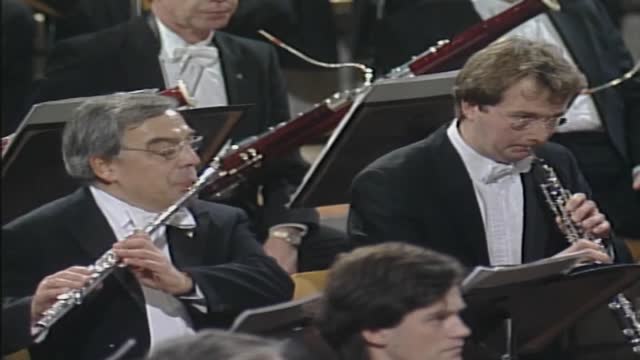As soon as his musical aptitude was noticed, Vladimir Spivakov entered the Soviet training system and was moved from his remote hometown to Moscow to attend the Central Music School. During intermediate studies at the Leningrad Conservatory he won the White Nights Festival Contest aged thirteen, putting him into public awareness before he completed his training at Moscow’s Tchaikovsky Conservatory with Yuri Yankelevich. His solo career has followed a steady path of international appearances and recording activity, and he has given a number of premieres including works by Arvo Pärt. He conducts his own chamber orchestra, the Moscow Virtuosi, teaches at the Madrid Conservatory and directs the Colmar International Festival.
His wide-ranging discography reveals an artist of impassioned intensity, very much in the modern mould and yet also suggesting something of his Soviet heritage. His performances are characterised by a sound involving fast and relatively tight vibrato and a powerfully direct tone.
Much of his best playing can be found in Romantic and twentieth-century music, as shown here. His three Brahms violin sonatas with Alexander Ghindin (2006), of which No. 1 (Op. 78) is perhaps the best, are measured and assured performances, although the very legato phrasing (overriding, perhaps, Brahms’s fondness for shorter ‘classical’ phrase lengths) will not suit all tastes. The extremely slow movement of Op. 78 and rather heavily-pedalled piano playing may also be off-putting to some listeners.
Chausson’s Poème (2004) is more enticing. The piano initiates a captivating atmosphere, carried through into the violin’s entry. Phrasing is, perhaps, a little inconsistent and Spivakov cannot resist a Menuhin-like downward portamento with vibrato and another bowing mannerism associated with Menuhin: a slight separation of slurred notes. There is a curiously old-fashioned quality to Spivakov’s sound here, with quite a fast vibrato superfi cially recalling the uses of the device by early-twentieth-century players. This is a characterful and meaningful performance, as is that of Strauss’s Op. 18 Sonata (2001).
Spivakov’s thoughtful and resonant Berg Concerto (2003) is an excellent but otherwise orthodox performance for its time, whilst Arvo Pärt’s Fratres (2005) begins well but is too soloistic an understanding of Pärt’s introspective aesthetic.
Shostakovich’s Violin Concerto No. 1 (2002) comes across very convincingly, Spivakov’s interpretation developing momentum with a sense of inevitability and authority. Notable in the Passacaglia and carried through into the cadenza is a pleasing freedom of tempo. Here Spivakov sounds utterly at home, in a steadfast but exciting performance that epitomises his powerful artistry.
© Naxos Rights International Ltd. — David Milsom (A–Z of String Players, Naxos 8.558081-84)
| Title | |
| NEW YEAR'S EVE CONCERT 1990 - TCHAIKOVSKY, P.I. / SCHNITTKE, A. / SHOSTAKOVICH, D. (Spivakov, Bashmet, Rostropovitsch) | |

|
NEW YEAR'S EVE CONCERT 1990 - TCHAIKOVSKY, P.I. / SCHNITTKE, A. / SHOSTAKOVICH, D. (Spivakov, Bashmet, Rostropovitsch)
Composers:
Schnittke, Alfred -- Shostakovich, Dmitry -- Tchaikovsky, Pyotr Il'yich
Artists:
Bashmet, Yuri -- Berlin Philharmonic Orchestra -- Rostropovich, Mstislav -- Spivakov, Vladimir
Label/Producer: C Major |
